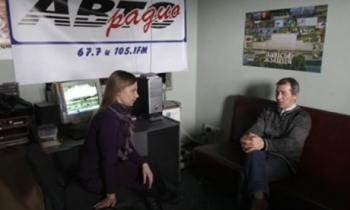Jyllands-Posten, the Danish newspaper that first published the controversial cartoons about the prophet Muhammad, today acknowledged it would not have published the drawings had it known the consequences of its decision.
In a leader entitled 'What if?", the daily title says "the editor in chief of ... Jyllands-Posten has been asked the natural, but hypothetical, question: what if one had known the full consequences of the 12 cartoons printed in the newspaper's cultural supplement on September 30 last year? Would one have still published the cartoons?"
"Today the answer is no! If we had known that it would end with death threats and that the lives of Danish people could be put at risk, we would have naturally not have published the drawings."
The leader adds: "It is clear that the price for this journalistic initiative in the light of this background is too high".
However, Jyllands-Posten then explains why it is not apologising for publishing the cartoons in the first place.
"The point is, however, that no one could have known the full consequences. Therefore, this question is meaningless," it says.
"We could not have known that a group of imams would travel to the Middle East and spread lies and disinformation, not only about Jyllands-Posten, but about the whole of Danish society."
"One could accept trade boycotts but realistic threats on lives mark the border between what is acceptable and unacceptable.
"A number of more-or-less intellectually capable individuals have, in the aftermath, been busy telling us 'I told you so' and that anyone would have foreseen the consequences. Everyone can make their own opinion about the validity of these statements.
"Those same circles have also been quick to interpret the editor in chief's statements as an acknowledgement that he "regrets" or finds it wrong to publish the cartoons. They see it also as an apology for having hurt Muslims' feelings. They see that as a general bailing out of the whole project."
"Morgenavisen Jyllands-Posten [the paper's full name] has acknowledged that the newspaper has underestimated many Muslims' feelings about their prophet. There lies the apology. And there only."
The leader then uses very strong terms against some of its critics.
"Jyllands-Posten has nothing to apologise towards those fundamentalist powers who have abused the whole situation to further their own agendas, agendas that are totally irrelevant to the newspaper, and increase their own propaganda.
"The editor in chief is resigned to the fact that fundamentalist powers have won over the freedom of speech. It is based on a realistic assessment that Danish media will now be careful to express attitudes that fundamentalists can misuse to create hate and bitterness.
"The positive lesson of this whole debacle is that, for the first time, plain words are used in public debate. We have seen the difference between those societies that are characterised by western, democratic, and in most cases, Christian values, and those societies that have a religion strictly ruled by laws.
"In the world that that is characterised by Christian values, religion is a personal affair for the individual, while in the countries where religion is strictly ruled by laws, Islam is a complete package where one cannot 'pick and mix'.
"All respect for that, as long as one does not try to force their own values on the other part. This is exactly what has happened, when forces which are alien to Danish democracy, rights and freedom of speech interfere with what an independent Danish newspaper brings to its readers, regardless of what the words or images are.
"Among colleagues, we jokingly say that there is a lot in a newspaper that one would benefit from ignoring. If fundamentalists did not take themselves so seriously, they could also see the benefits of ignoring the parts of a democratically based Danish newspaper that does not suit them."









